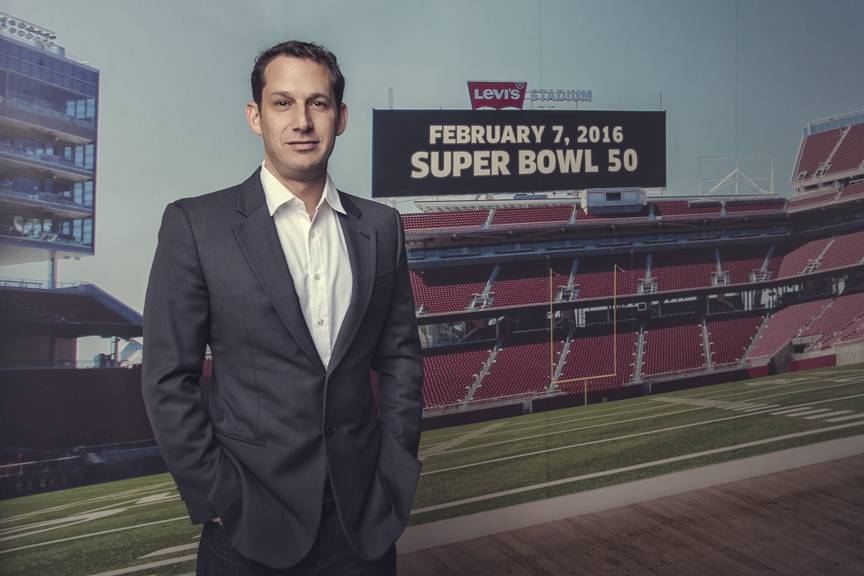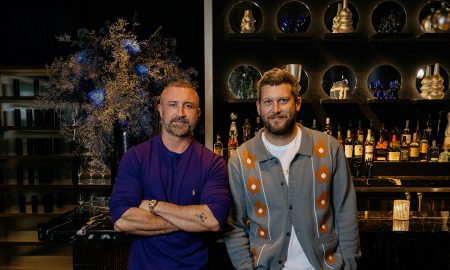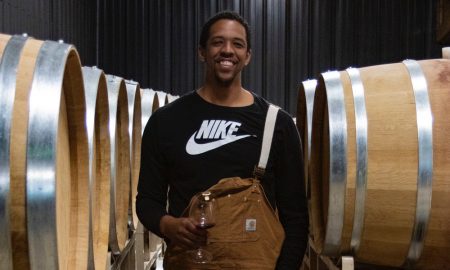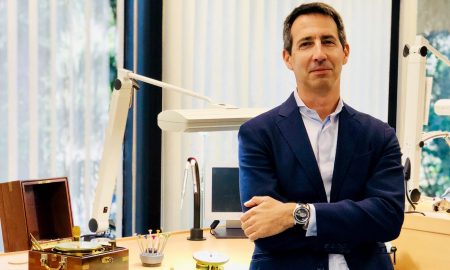You’ll be forgiven if you assume that Tipping Point Community founder and CEO Daniel Lurie is the son of former San Francisco Giants owner and ex-real estate magnate Bob Lurie. It’s an error many people, even Pro Football Hall of Famer Ronnie Lott, make.
“I’m pretty sure [Lott] mistakenly thought I was Bob’s son when he took the lunch meeting with me,” says Lurie, who at the time was working on his business plan for his Master’s degree in public policy at the University of California, Berkeley. That successful lunch meeting 12 years ago led to Lott teaming up with Lurie, Chris James, founder of Partner Fund Management, and Katie Schwab Paige, the daughter of Charles and Helen Schwab and director of their eponymous foundation, to establish Tipping Point Community. This brainchild of Lurie was created in 2005, taking its name from Malcolm Gladwell’s bestselling book, The Tipping Point: How Little Things Can Make a Big Difference. The charity has since become the Bay Area’s leading poverty-fighting organization. In a decade Tipping Point has raised over $100 million for education, employment, housing and health in the region, reaching 600,000 people in need, and getting multiple communities behind its efforts. Lurie’s stewardship is one of the reasons why he was selected chairman of the San Francisco Bay Area Super Bowl 50 Host Committee. Yes, he’s the one we all should be thanking for successfully presenting the Bay Area’s bid to host Super Bowl 50 to the 32 NFL owners back in 2013.
At the recommendation of 49ers CEO and Tipping Point board member Jed York, San Francisco Mayor Ed Lee picked Lurie for the top job. From the start, Lee was magnanimous about the Super Bowl being a Bay Area-wide event and working with Santa Clara Mayor Jamie L. Matthews and then San Jose Mayor Chuck Reed.
“Pat Gallagher, who’s in our office and was on the bid committee, often liked to say that this was the first thing that the whole Bay Area could agree upon in a while—and he’s right,” Lurie shares. “… It’s been humbling. I’m proud to see our whole region coming together around this whole event.”
Lurie and his gang are on a mission to have Super Bowl 50 remembered for more than the festivities. The host committee created 50 Fund to make Super Bowl 50 the most philanthropic and giving Super Bowl ever. In addition to a $1 million legacy grant from the NFL Foundation, Lurie saw to it that 50 Fund is supported by 25 percent of the corporate sponsorships that fuel the Super Bowl 50 Host Committee as well as the generous contributions from the “Friends of 50 Fund.”
The initiative was launched, appropriately, on #GivingTuesday in December 2014. One year later and still two months before kickoff, the 50 Fund had already given away $5 million of its $13 million goal. More than just bringing in money, it’s also about putting the funds to good use in order to help close the opportunity gap that exists for Bay Area children, teens and young adults living in low-income communities.

Lurie hopes what his committee is doing will set a new standard for one of the world’s most watched events, as well as other sports extravaganzas. “I know there’s always a little philanthropy sprinkled alongside a major event, but why does it have to be sprinkled on the side?” he asks rhetorically. “Why can’t it be a major part of a community’s approach to hosting the college football national championship game, the Olympics or major golf tournaments? It is a part of our DNA here at the host committee.”
That’s because giving is part of Lurie’s DNA, too. His father, Rabbi Brian Lurie, spent 17 years as the executive director of the Jewish Community Federation of San Francisco, the Peninsula, Marin and Sonoma counties; his mother, Mimi Haas, married renowned philanthropist Peter Haas, the former CEO of Levi’s, in 1981. Growing up in San Francisco watching the herculean humanitarian efforts of Peter and Mimi and his father and stepmother Caroline, Lurie couldn’t help but be affected in a positive way.
“I think all of my parents’ commitments to giving back and the community was something that my siblings and I learned from,” states Lurie. He and his wife, Becca Prowda, take good care to teach their 4-year-old daughter and 1-year-old son kindness and generosity. “They were all instrumental in the career that I ended up in.”
The born leader was president of his elementary school, where he recently returned to speak. He also was also student body president of his high school and his sophomore class at Duke University but lost his campaign for Duke student body president. “I got whooped,” he says. “I lost horrendously.”
After earning a B.A. in political science at Duke, he headed to New York, where he later landed a job at The Robin Hood Foundation, noted for its metric system that determines how to smartly spend philanthropic money. A week into his new job, he emerged from the subway one block from the World Trade Center after the first plane hit the building on 9/11. Once in his office, he heard the second plane go by his building. The Robin Hood Foundation never returned to its lower Manhattan offices. Lurie did stay on for the following two years, absorbing as much information as possible so he could return to San Francisco, go to grad school and, with Robin Hood’s blessing, start a similar organization.
“When I started Tipping Point, there weren’t a lot of people that thought we could do what we were hoping to do,” Lurie confesses. “Ten years ago we tried to help redefine and update philanthropy, and that’s what we’re doing for the Super Bowl in 2016.”
While the majority of Tipping Point’s donations come from the finance industry, the innovative tech community also latched on early to the new charity that wasn’t about following the old rules. On hand for Tipping Point’s annual fundraiser in 2015—which by the way brought in a staggering $14 million and a surprise performance from rapper Snoop Dogg—were tech titans including Salesforce CEO and founder Marc Benioff, Yahoo CEO Marissa Mayer, Apple’s chief design officer Jony Ive, IfOnly.com founder Trevor Traina, Zynga CEO and co-founder Mark Pincus, ex-Twitter CEO Dick Costolo, The Monkey Inferno founders Michael and Xochi Birch and GoPro president and Tipping Point board member Tony Bates.
“We do things in a nimble way and we are trying to push the envelope,” Lurie offers as the reason why his charity is the darling of the tech industry. “We’re not okay with the status quo. We think that there are too many big problems, and we attack these problems by challenging the way things have always been done.”
For example, Tipping Point launched “T Lab,” an in-house incubator for problem solvers to come up with new solutions to old struggles. Prison re-entry, affordable childcare and early childhood education are three issues it is tackling presently. In the city of Oakland, 31 percent of the 3- to 5-year-olds are not enrolled in preschool or kindergarten. Therefore, Tipping Point piloted a program that offers preschool to 3- and 4-year-olds three days a week on a retrofitted school bus that sits on the blacktop at East Oakland’s Aspire Public Schools’ Monarch Academy, where 90 percent of kindergartners didn’t have a preschool experience.
Tipping Point also appeals to financial supporters because every single dollar given to the charity goes toward the fight against poverty. TPC’s board, which has grown from the four founders to 24 members, underwrites all operating and fundraising expenses.
At the helm is Lurie, who consistently receives praise from everyone who works with him, including Charlotte Mailliard Shultz, San Francisco’s chief of protocol during eight mayoral administrations. “I told him, ‘You’ll be mayor one day.’ I’ll support him,” Shultz says.
She’s not alone in her thinking. Lurie has a way of bringing people together. “I pride myself on knowing that there are a lot smarter people out there than myself,” Lurie says, adding, “but I don’t think that there’s someone out there that cares more than I do. I’ll always continue to want to improve the situation. In our community, I see a lot of problems. But in my mind that means there’s opportunity for solutions and improvement. That’s exciting to me.” If you see Lurie during Super Bowl Week, tip your hat to him.

























